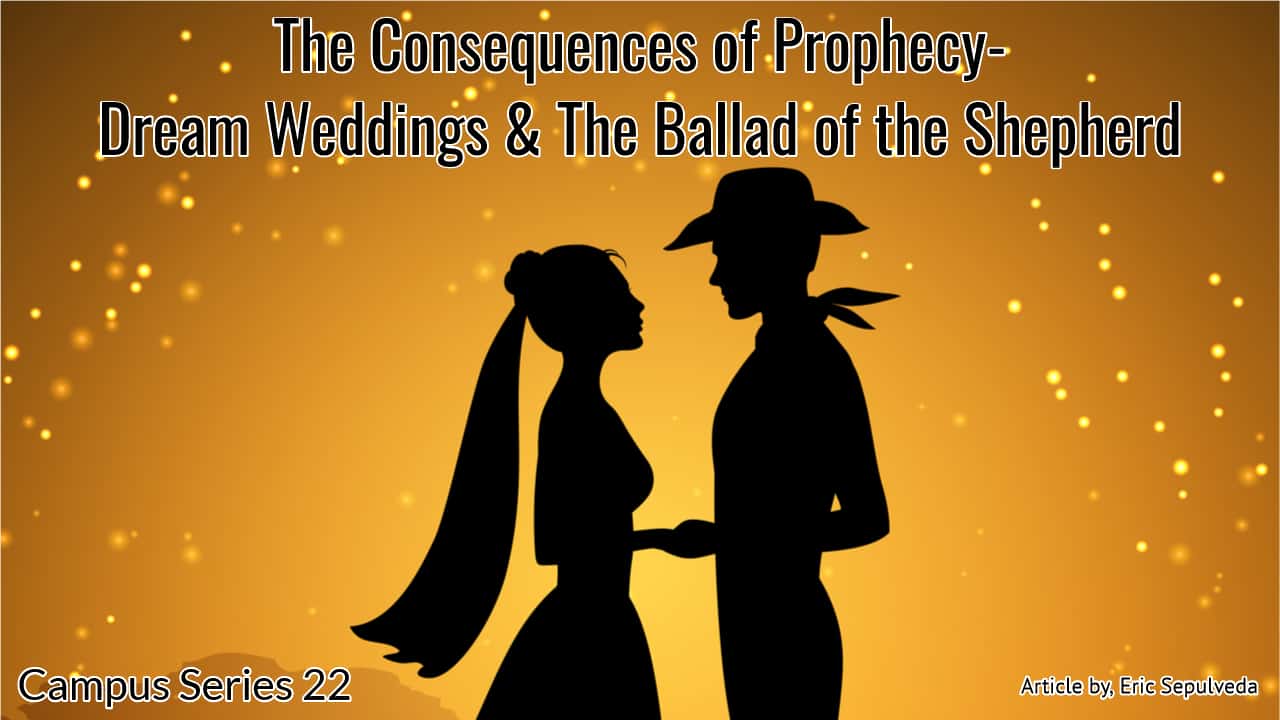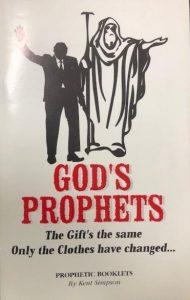
The Consequences of Prophecy-Dream Weddings & The Ballad of the Shepherd
Song of Songs is a prophetic musical King Solomon composed as a way of expressing the way that Jerusalem had turned from its initial monogamous worship of God and now began to worship other imported deities introduced by Solomon’s many foreign wives. The Shulamite, who represented Israel, had already begun flirting with the concept of being just another wife of Solomon’s, but also had visions of what life with her childhood sweetheart would have been like if she chose him instead.
The Second Act opens with the Shulamite waking up from a dream which she describes for the audience.
She looks for her Love in the middle of the night but cannot find him. She is no longer in the countryside she grew up in alongside her Beloved, but in the city. She searches the alleys and the major streets but is unable to find him. She even goes to the city’s night watchmen to ask if they have seen “him whom [her] soul loveth”, but they do not know this small town country boy who is a foreign stranger in this big city (ref. Song 3: 1-3).
After asking the night watch, she finally finds her Love. She holds him tightly and won’t let him go, until she brings him back to the countryside, to her mother’s house and her mother’s room (ref. Song 3:4).
While the Shulamite and her Beloved are back in their hometown in her mother’s home, a grand procession begins.
Again, in contrast with her Love who is described with rural environmental scenery, King Solomon has all the trappings and finery that you would expect of royalty.
Solomon comes out of the wilderness like a column of smoke, perfumed with myrrh and incense made from all the foreign spices of the merchant. Unlike her humble shepherd Love who bounds through the pastures and mountains amongst his flocks, Solomon rides upon a carriage or sedan and is even escorted by sixty body guards! They are the noblest in Israel, all of them wearing a sword at their sides, ready to use their experience in battle to face the terrors of the night. Solomon’s carriage is made from Lebanese cedar, its posts are made of silver and its base of gold. Its seat was upholstered with purple and the interior is inlaid with love for the Daughter of Jerusalem (ref. Songs 3:5-10).
These Daughters of Jerusalem are called to come out and look upon Solomon in all his glory. He is crowned with the diadem that his mother gave him on the day of his first wedding, the day his heart rejoiced (ref. Songs 3:11).
While the whole town is amazed by King Solomon’s arrival, the Shulamite’s Love can’t take his eyes off of her.
He declares his love for her, but the simple country boy can only wax poetic with the words his life as a shepherd has granted him.
He describes her hair as “like a flock of goats descending from the hills of Gilead”, her “teeth are like a flock of sheep just shorn, coming up from the washing” each having a twin. Her cheeks or temples are like a piece of pomegranate behind her locks of hair. Though he does not live in Jerusalem, he is an observant Jew who goes for the required feasts. The scarlet ribbon/strand tied around the scapegoat on Yom Kippur is used to describe her luscious lips and her neck reminds him of the famous Tower of David, which he would see as he entered Jerusalem through the Jaffa Gate. He playfully describes her perky breasts as twin fawns of a gazelle that he had seen prancing through the lilies he had seen while grazing his flocks amongst the lilies.
While expressing his love for her, he recalls the farthest reaches of his journeys, and focuses on the rocky mountainous regions his flocks would have to travail to find fresh pastures. Starting in craggy Lebanon, they descend from the crest of Amana, the top of Senir, the summit of Hermon, crossing the caves that hide lion’s dens and the mountainous haunts of leopards (ref. Song 4:8).
The Shepherd declares that she has stolen his heart, calling her his sister/beloved and bride several times heavily implying that they are in the middle of a wedding scene (ref. Song 4:8, 9, 10, 11, 12).
The Shepherd again uses natural imagery to describe Her Love as more pleasing than wine, her scent better than any of the foreign spices Solomon’s caravan reeks of. Her lips sweeter than honeycomb, her kisses like honey and milk. She smells of the countryside of Lebanon which he loves (ref. Song 4:10-11).
Her virginity is a garden locked up, a spring enclosed, a sealed fountain. The man who wins her heart will be lavished with the greatest natural wonders: succulent pomegranates, sensuous scents of henna and spikenard, saffron, calamus and cinnamon, incense, myrrh, aloes and the finest spices. Ultimately she is life giving and nurturing, a garden fountain, a well of flowing water streaming down from the countryside (ref. Song 4:12-15).
The Shulamite takes joy in being his Bride, asking for the North and South Winds to spread her fragrance everywhere. She is ready for her Beloved to come into her garden and taste of its choice fruits, a poetic description of their first night as Husband and Wife (ref. Song 4:16).
After their first intimate encounter after the marriage ceremony, her Love declares that He has come into his garden, again describing her as his sister, beloved and bride. He has gathered his myrrh and spices, eaten his honeycomb and honey and drunk his wine and milk (ref. Song 5:1)
The wedding attendants declare:
Eat, friends, and drink;
Drink your fill of love.
But it was all a dream.
In reality, she is in Jerusalem. She decided to accept Solomon’s engagement and left her small country town and her shepherd love.
And now she is beginning to regret her decision.
Act Two begins with the Shulamite dreaming of trying to find her love after she’s made the horrible decision to go to Jerusalem to marry Solomon. She ultimately finds him searching for her as well and they rush back to her mother’s home to ask for her blessing to be married. Solomon returns looking for his bride to be, but the Shepherd’s simple natural words of love win her over. They marry and consummate their love as their friends and family celebrate, but she wakes up only to realize that she is still in Solomon’s mansion waiting for their wedding day.
For all his wealth and many wives, King Solomon missed out on one of the greatest joys of life: rejoicing in the wife of your youth, captivated by her love forever (ref. Proverbs 5:18-19). Solomon had been excited during his first wedding day, still wearing the crown that his mother placed on his head, but the marriage was not built on a long standing relationship with deep mutual love for each other, so he was unsatisfied and sought others to fulfill his desires. Ultimately, he was left empty, constantly looking for that new excitement from a novel affair. This bled into his relationship with God and explains why he ended up building temples to satisfy the desires of priestess princesses.
While Jerusalem became more metropolitan and focused on the material benefits of trade with their foreign neighbors, Solomon writes through the voice of the Shepherd to declare that the natural gifts that God had bestowed upon Israel were greater than anything their neighbors could compare. At this point in his reign Solomon has been able to see that turning back towards the God of his father David and Israel’s foundation was the correct thing for him to do as a leader. But would the rest of the country turn their hearts back toward the Love of their youth?
Prepared by, Kent Simpson, Apostolic Prophet & Eric Sepulveda, PMT Administrator
For more prophetic media groups click here


